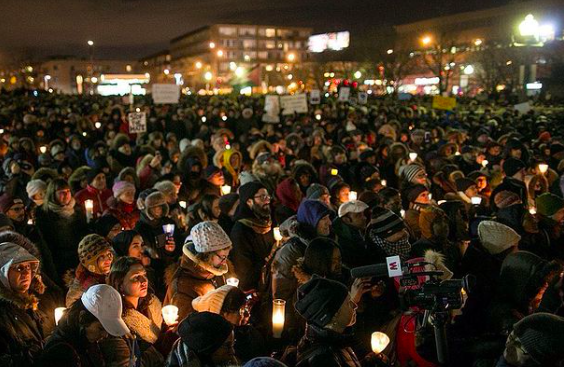
In light of the official announcement of the National Day of Remembrance of the Quebec City Mosque Attack and Action Against Islamophobia, members of the local Muslim community are reflecting on their experiences and pushing for more change.
Since 2017, the year of the Quebec mosque shooting, Muslim organizations have been taking action to declare Jan. 29 as a national day of recognition of the victims and against Islamophobia.
Four years later, the Government of Canada has now declared Jan. 29 as an official day of remembrance condemning “Islamophobia, hatred and radicalization” and promoting an inclusive community, according to a news release from the government website. Khuzaima Khatib, a third-year psychology student, says the first step is acknowledging the problem exists.
“People are finally starting to acknowledge that Islamophobia is as real today as it was yesterday,” Khatib said.
Khatib was finishing his last year of high school when the shooting occurred. He says that it was “traumatizing” to hear of such an attack in Canada, where he was supposed to feel safe when practicing his faith.
“I remember watching the news and listening to the families and friends of the victims talking… You could see the pain in their eyes for what they went through,” Khatib said.
Khatib says that he usually saw that kind of violence in other countries, so when it happened in Canada all he could think about was, “What if it could potentially happen where I am?”
In 2016, there were 139 documented hate crimes targeting Muslims in Canada. That number rose to 349 in 2017, an overall increase of 151 per cent.
Arisha Nazir, a University of Saskatchewan graduate who helped organize a campus vigil for the victims of the Quebec mosque shooting in 2018, says it is increasingly important to stand against these crimes.
“Islamophobia is real. It’s prevalent in Canada and no matter how many vigils [we hold], no matter how many things we do … things like these are going to keep increasing,” Nazir said.
Although recognizing Jan. 29 as a day of remembrance is a big step forward, Nazir says there is much more to be done. She believes that ignorance is a key issue that propels Islamophobic narratives, and that education and awareness are invaluable in combating it.
“We really need to be addressing the systemic causes of Islamophobia… The next steps, [from] what it looks like, is starting to have these uncomfortable conversations with people who might not want to have them right away,” Nazir said.
Khatib also says that more needs to be done, stating that Jan. 29 must “serve as a reminder of the urgency to stand up against these hateful acts.”
Although he has not personally experienced any attacks, Khatib lives in fear due to those of the same faith as him being attacked or being discriminated against. Describing this, he is reminded of a quote from well-known author Paulo Coelho, “The fear of suffering is worse than suffering itself.”
“Having to constantly question and worry about myself, my family or my friends falling prey to these attacks is extremely devastating to my mental well-being,” Khatib said.
In the face of these adversities and growing concerns, however, Khatib and Nazir have faith that things can and will get better.
Nazir says that the community coming together to stand against Islamophobia is encouraging.
“I know that hate is spreading like wildfire. People have these messed up ideas of what Islam is or what Muslims are supposed to be,” Nazir said.
“I believe in community and I believe in inclusivity and meeting people and talking to people… We can build community [that] can foster this inclusiveness and really meet people where they’re at.”
Khatib says it would be much easier for him to give up and to think that things can never change, but he has faith in those working to dismantle misconceptions about Islam.
“Hope itself is what pushes me through these adversities, hope that one day that I would be able to walk freely without having a fear of being attacked for my belief or my faith,” Khatib said.
“I hope to see that one day we learn to tolerate each other, and we learn to accept each other.”
—
Fiza Baloch | Staff Writer
Photo: Anadolu Agency
Leave a Reply